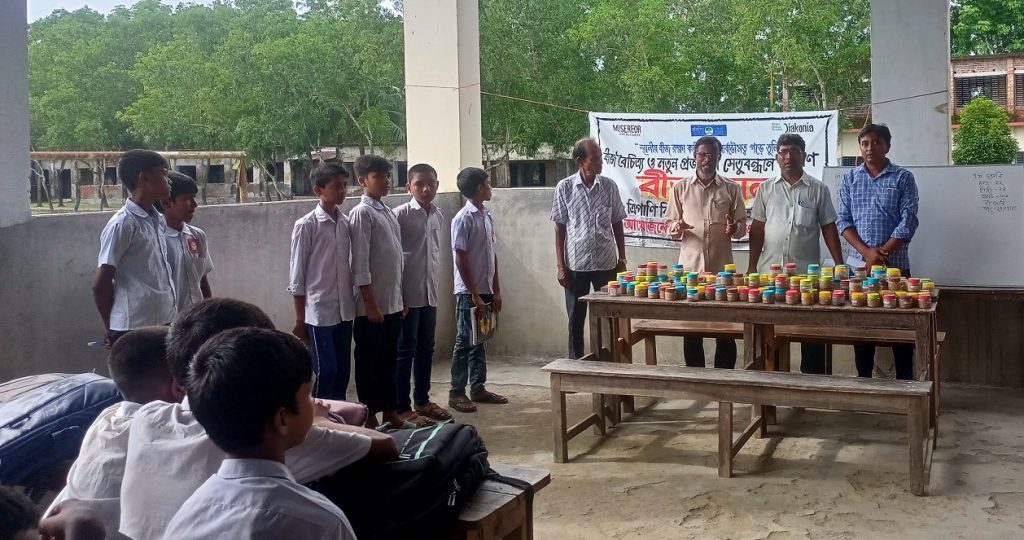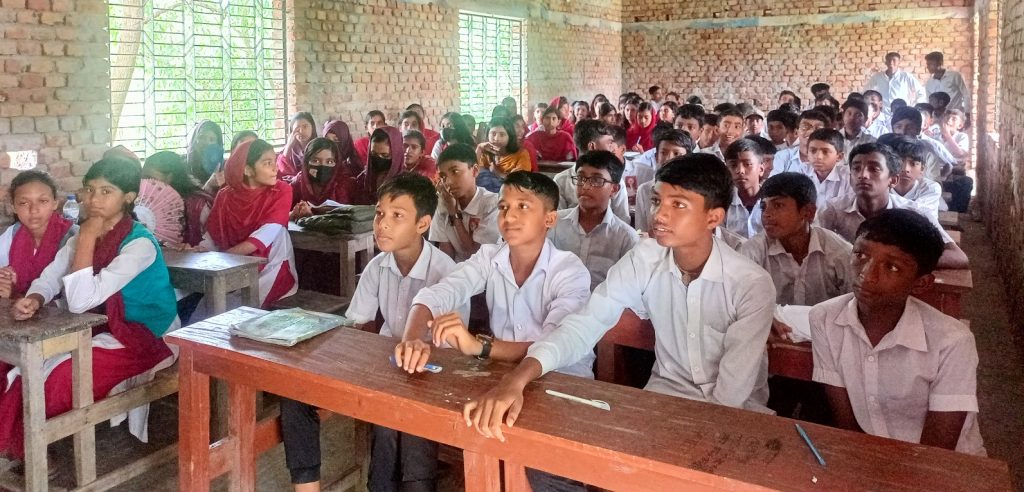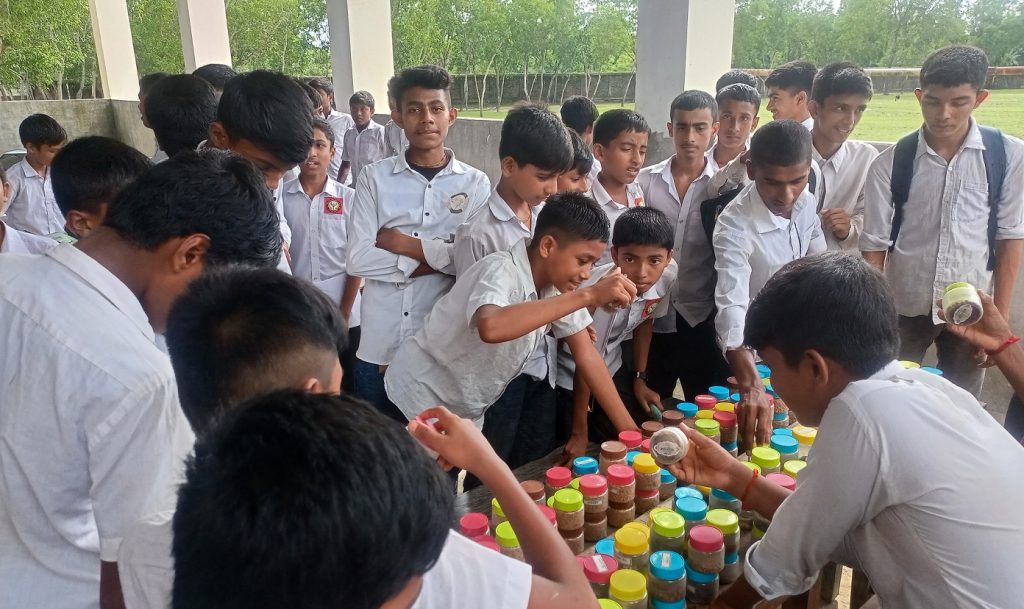By Barsha Gain, from the Coast
A unique and exceptional rural seed fair was held at Tripani Bidyapith in Munshiganj Union, Shyamnagar, Satkhira recently organized by Green Coalition and Sunderban students’ solidarity team (SSST) with the support of BARCIK.
Aimed to build a bridge between seed diversity and the new generation the event was.presided over by the head Teacher of Tripani Bidyapith, Abul Kalam Mallick. A total of 150 students, teachers, members of Green Coalition, and BARCIK officials participated in the event.

The fair showcased 162 varieties of native rice, 22 types of beans, 6 varieties of eggplant, 8 types of chili, 8 varieties of amaranth, and other indigenous crop seeds. A quiz competition was also held for students from grades 6 to 10 to increase their understanding of climate change, climate justice, environment, biodiversity, mangrove forests, local seeds, the importance of farmers, and challenges faced in coastal areas.

Head Teacher Abul Kalam Mallick said, “Our children have little knowledge of local seeds. Due to salinity and natural disasters, many local seed varieties have disappeared. The varieties cultivated in our fathers’ and grandfathers’ time are no longer seen today.’ He went on saying, when we think of seeds now, we think of hybrid seeds from shops. We are forgetting our native seeds. Many farmers are misled by seed companies, lured by the promise of high yields and profits, and end up facing losses.’
Green Coalition member Bhudhar Chandra said, “Seeds are the farmers’ own wealth. But today, that wealth has turned into a commercial commodity. By increasing awareness among farmers and the new generation about the importance of seed conservation, we can protect small farmers from the control of corporate syndicates and strengthen the country’s food security.”

Student Deepto stated, “Today we got to see and learn about many types of native seeds that exist in our area. We had no idea there were so many varieties of rice.”
BARCIK official Biswajit Mondal said, “We must prioritize the conservation of local seeds and ensure that the new generation learns about them both in school and at home. Only then can we ensure a healthy environment and achieve food sovereignty in the future.”

